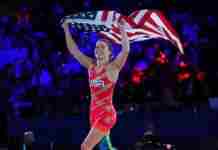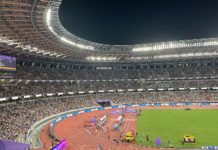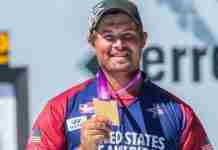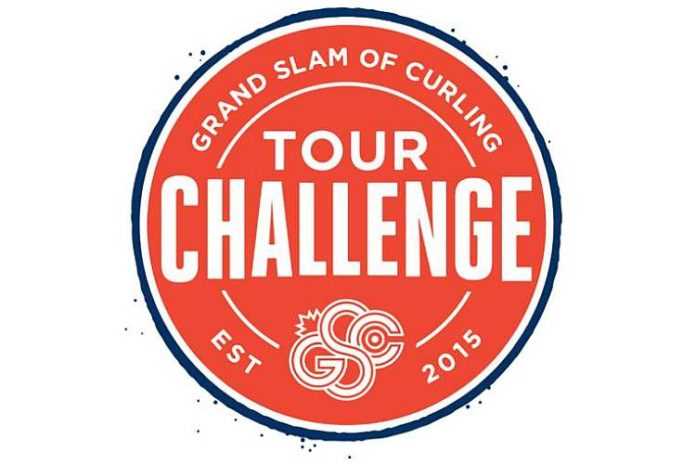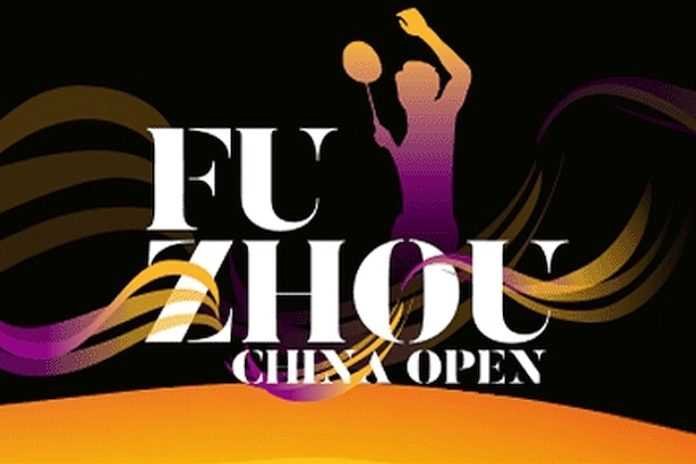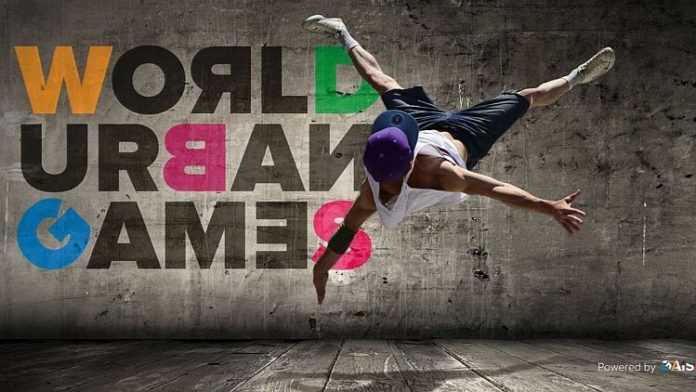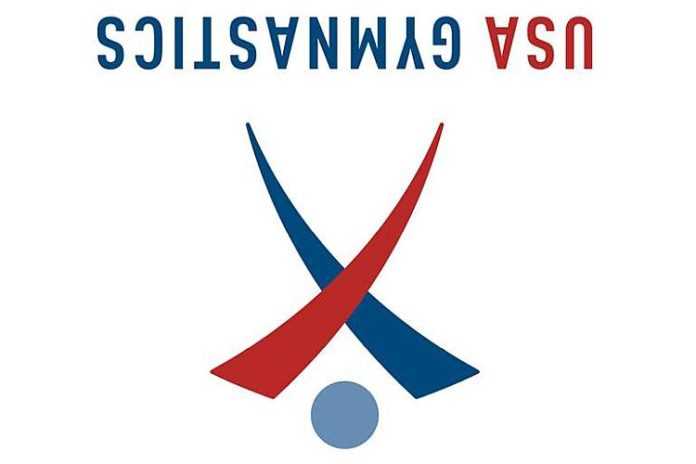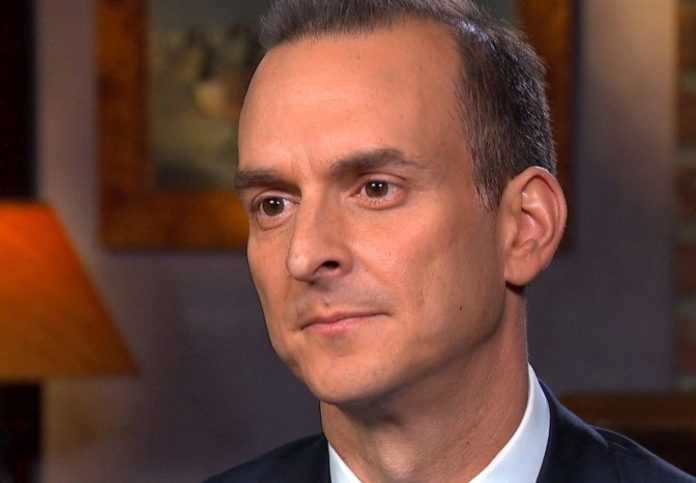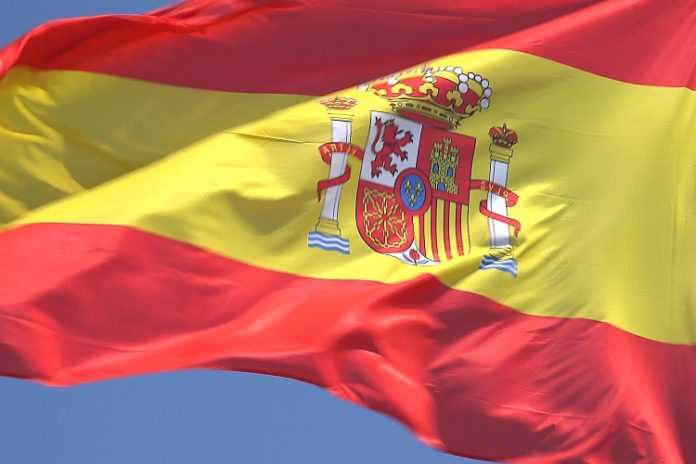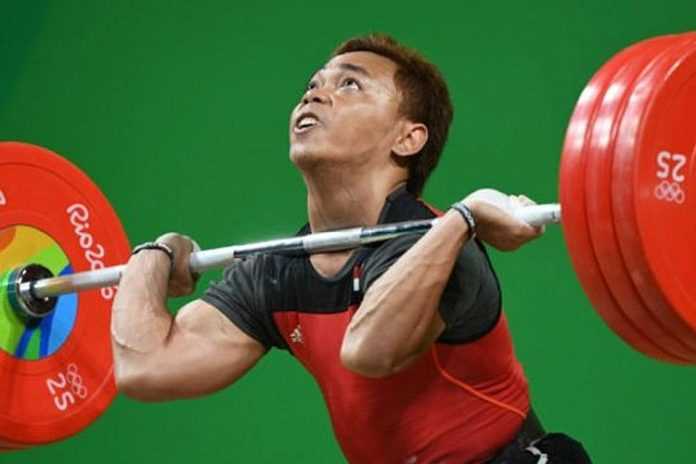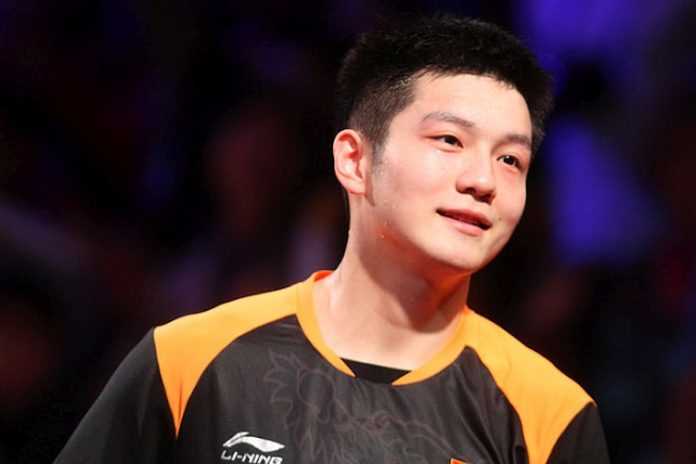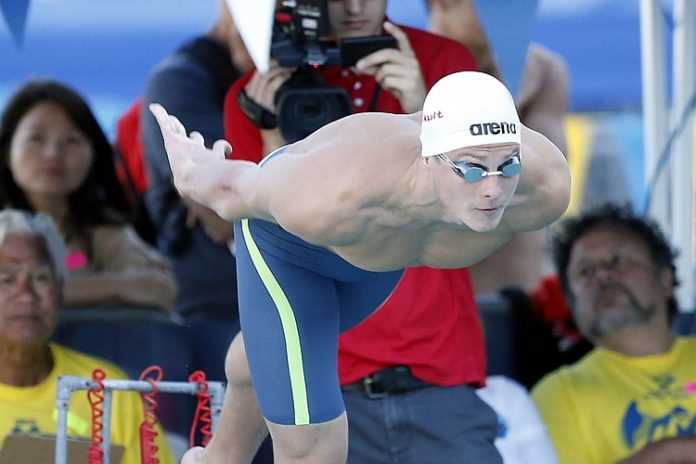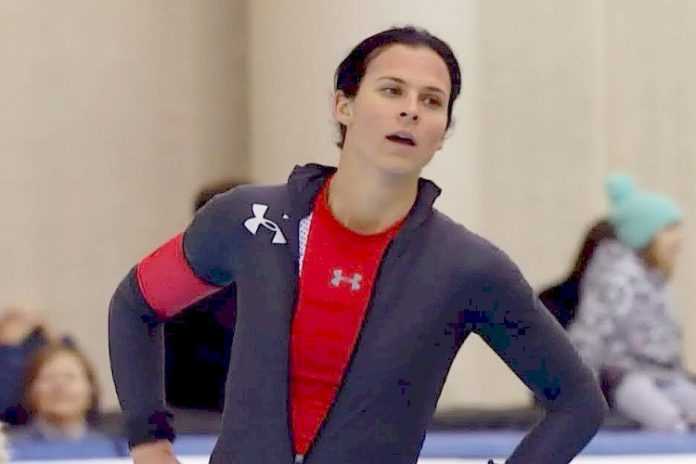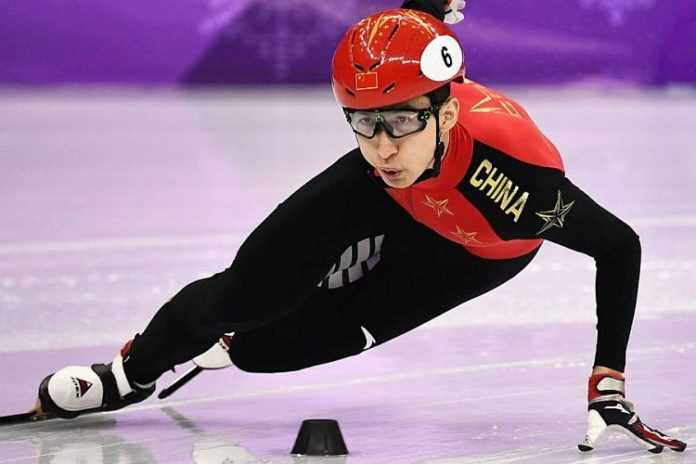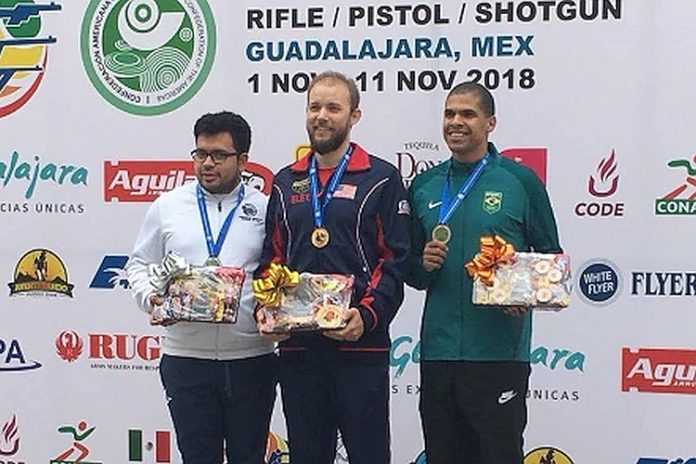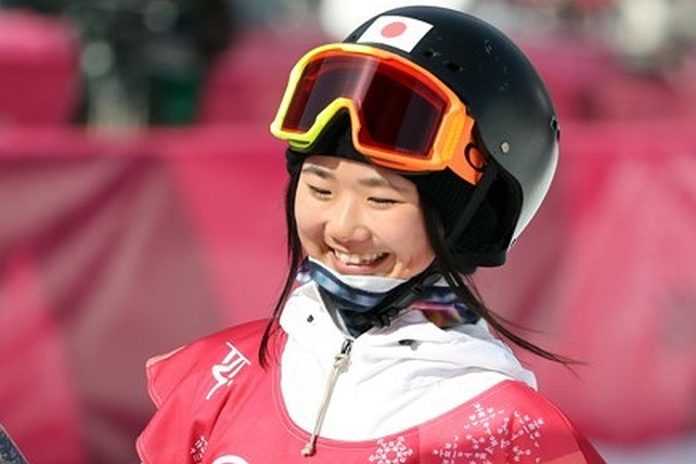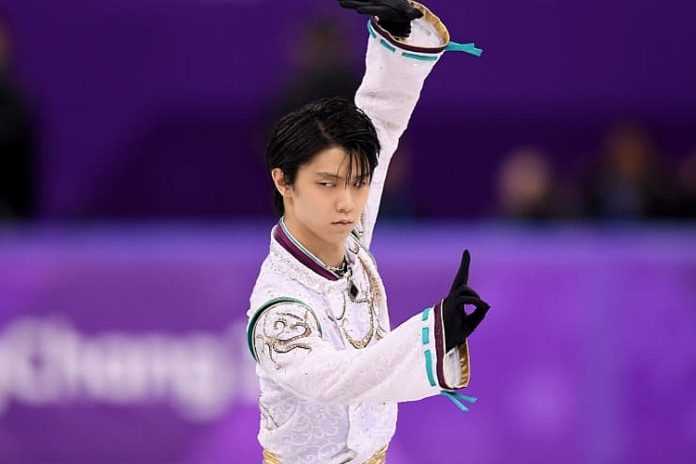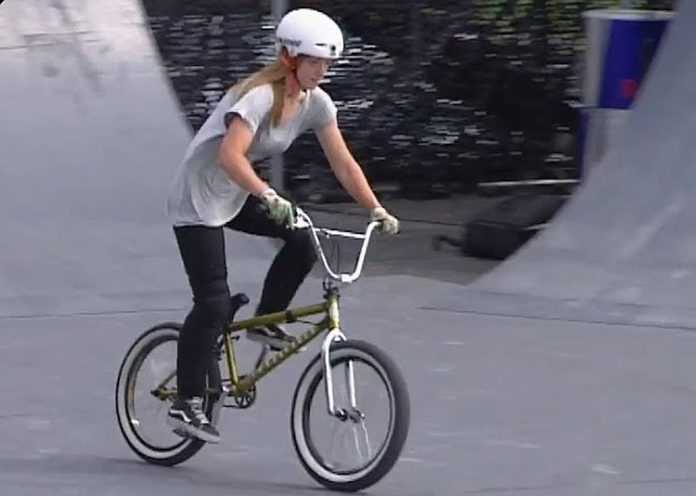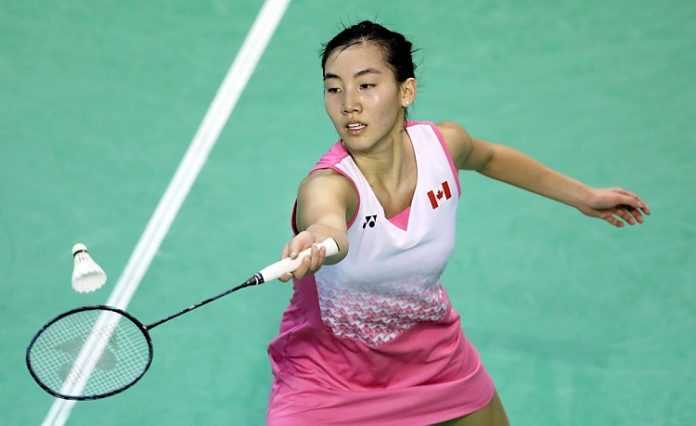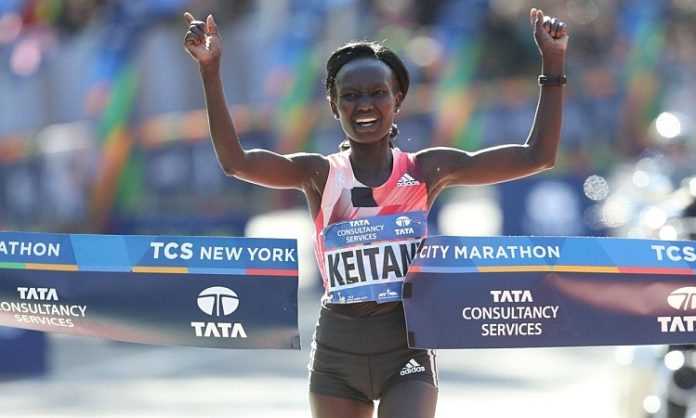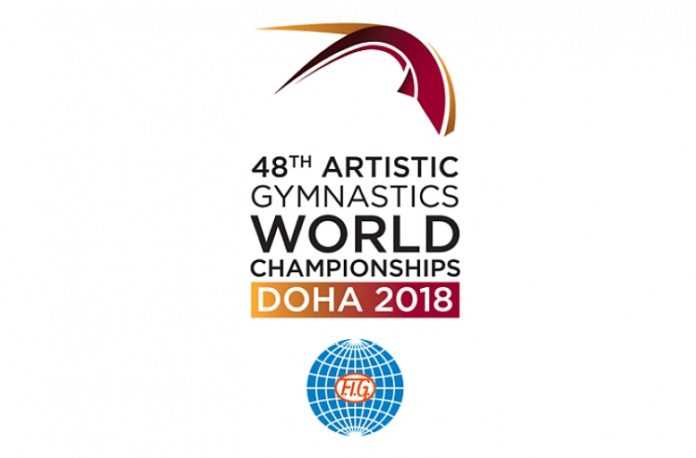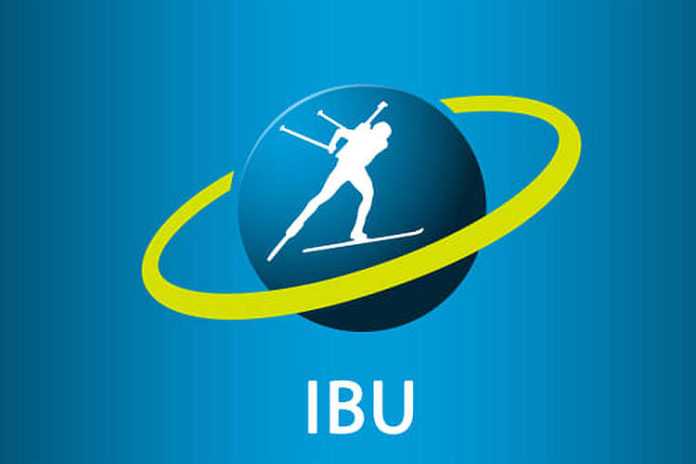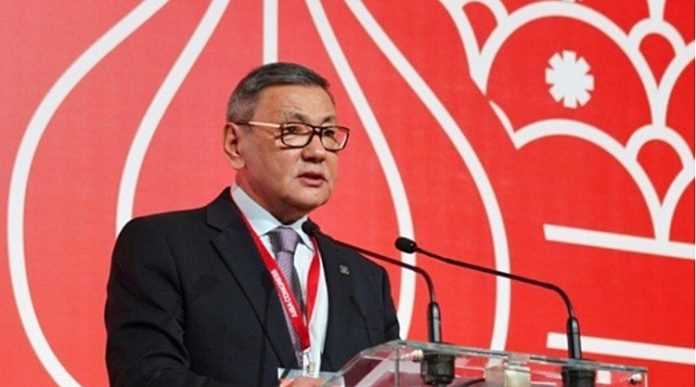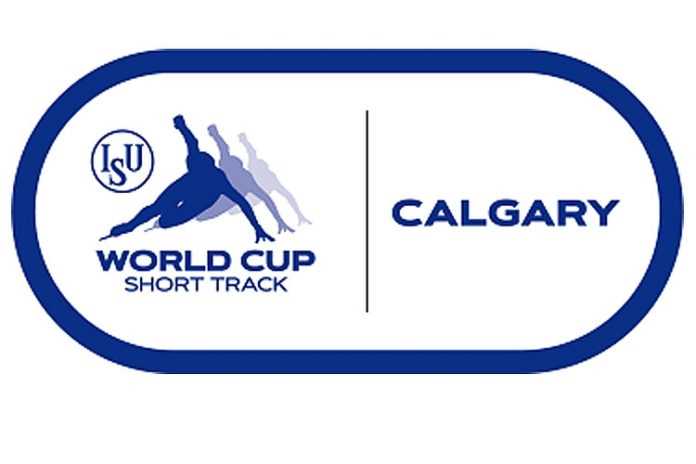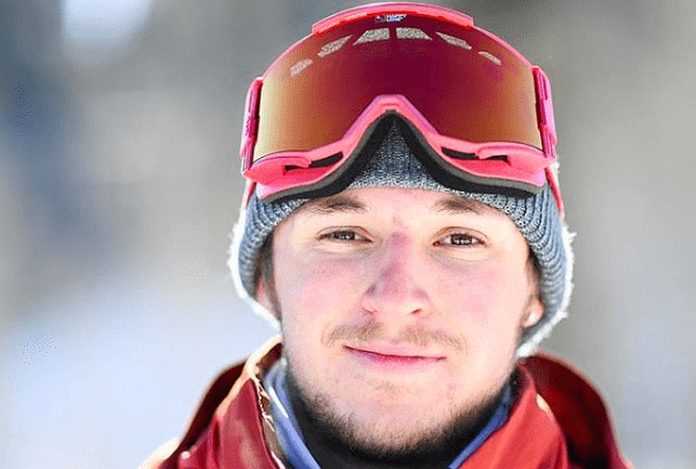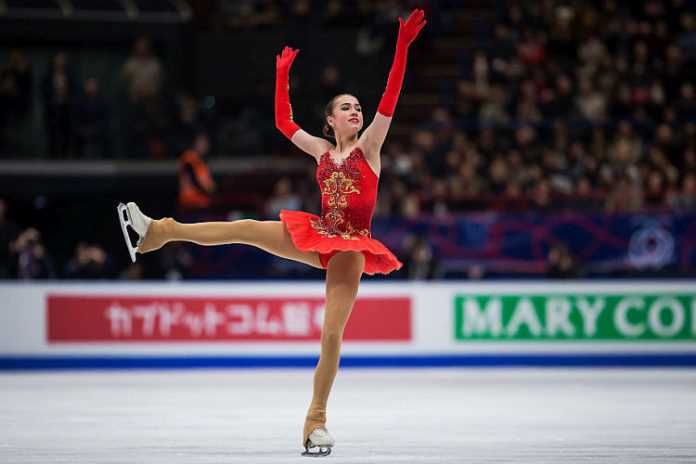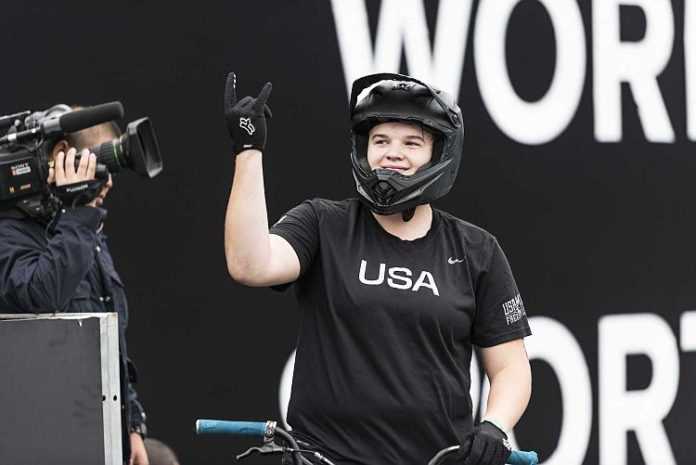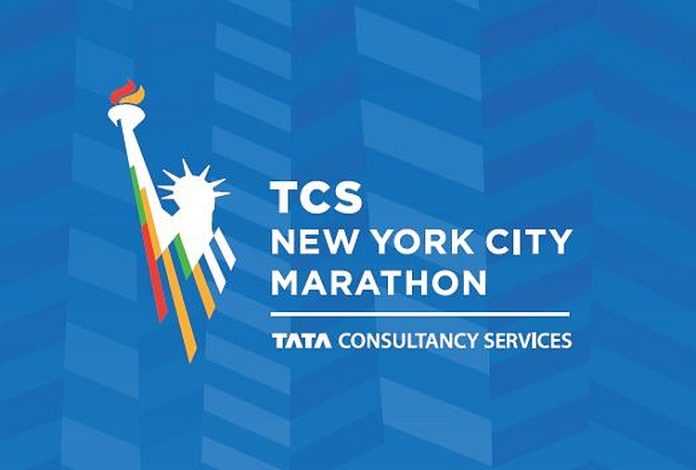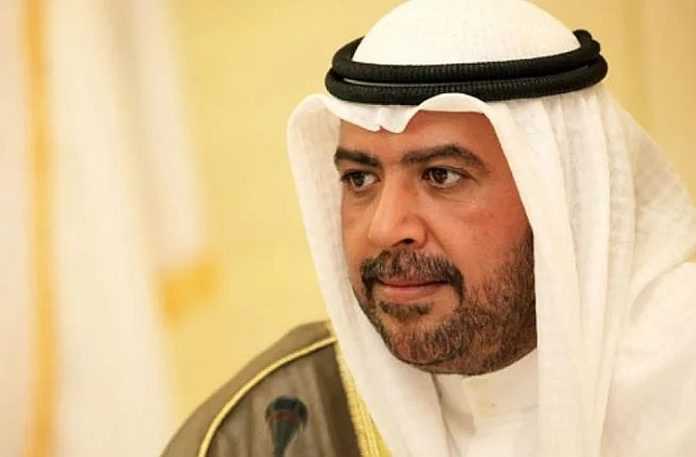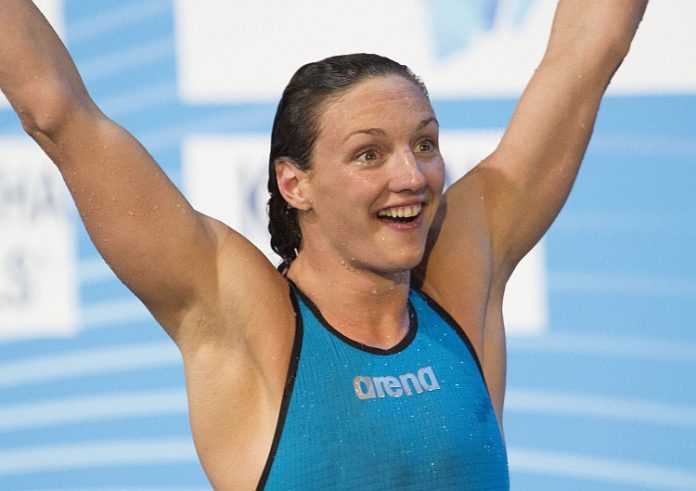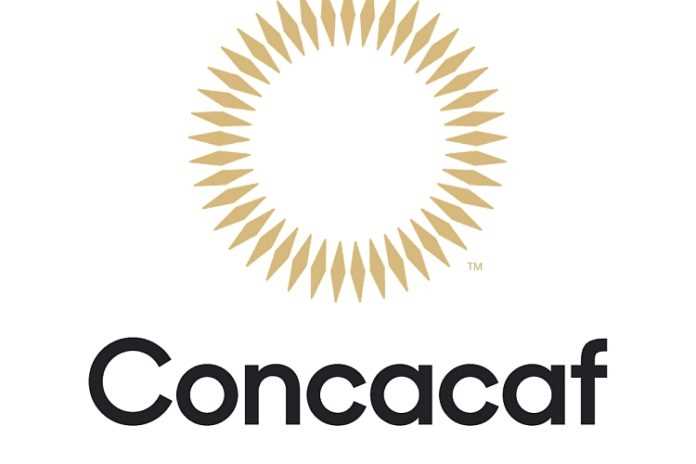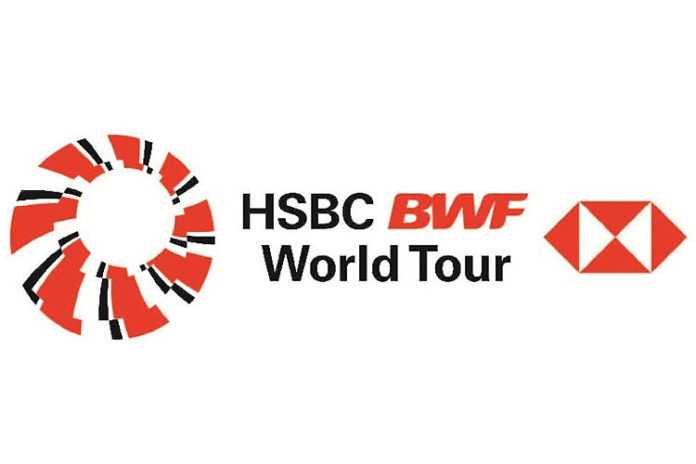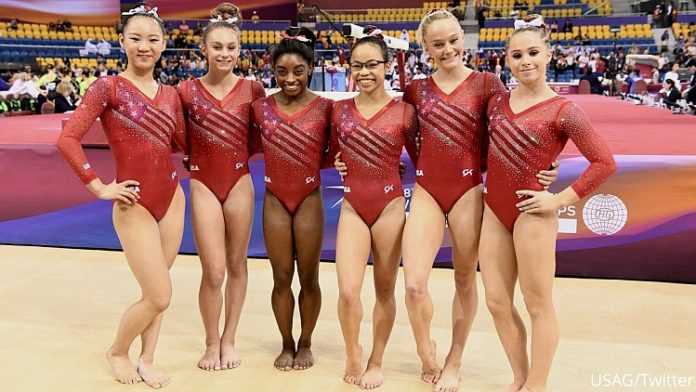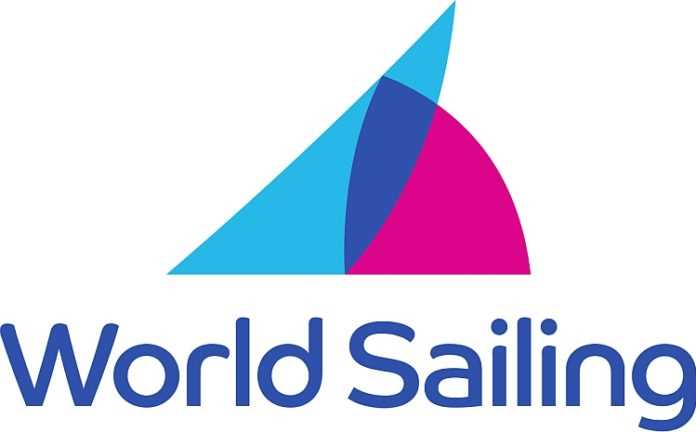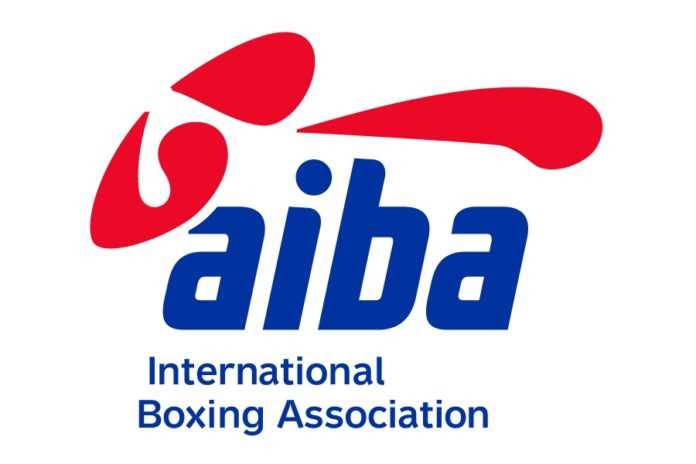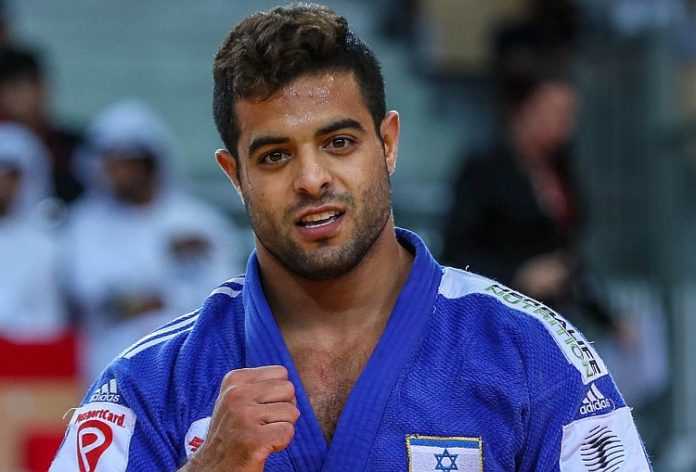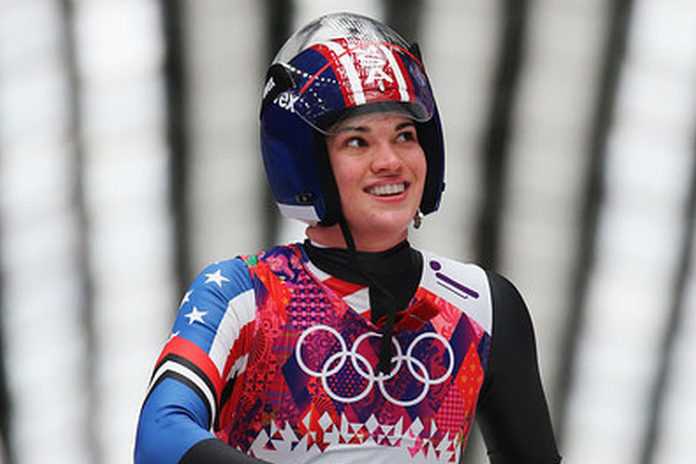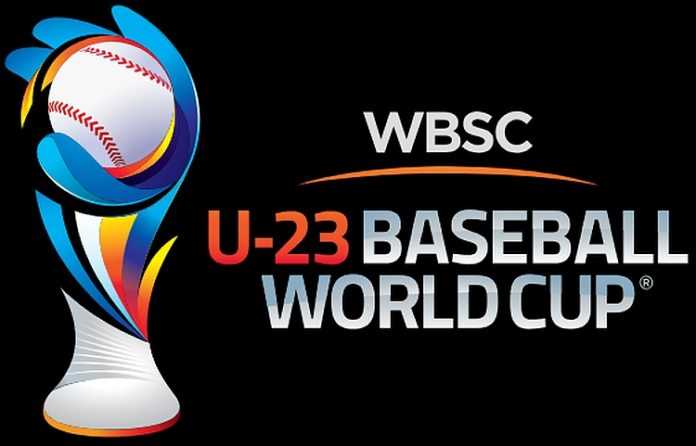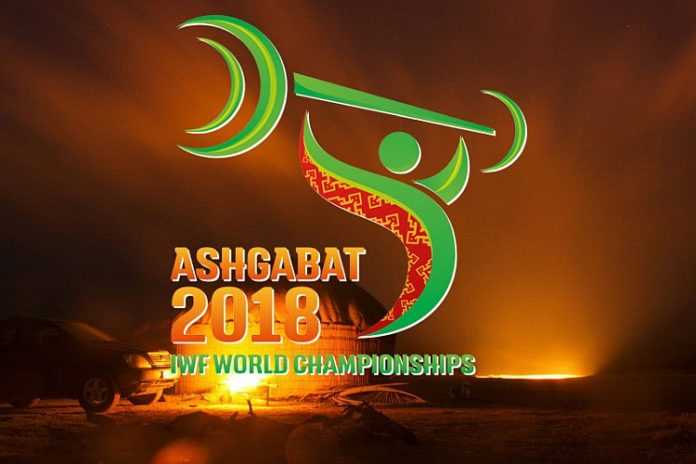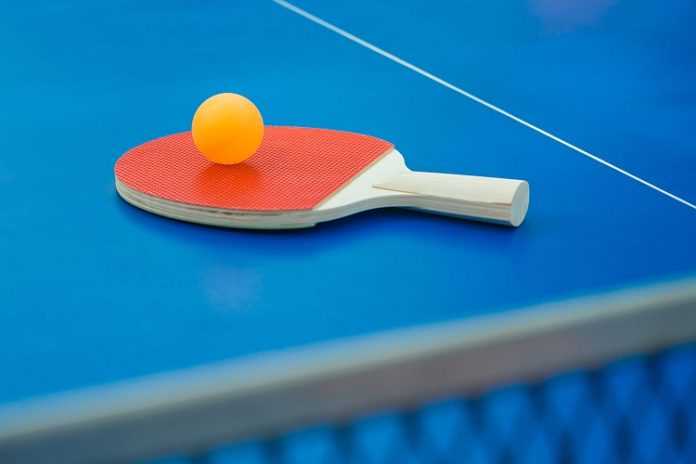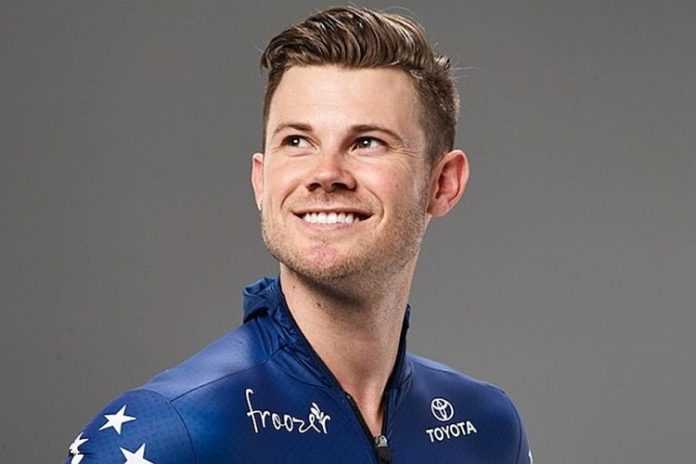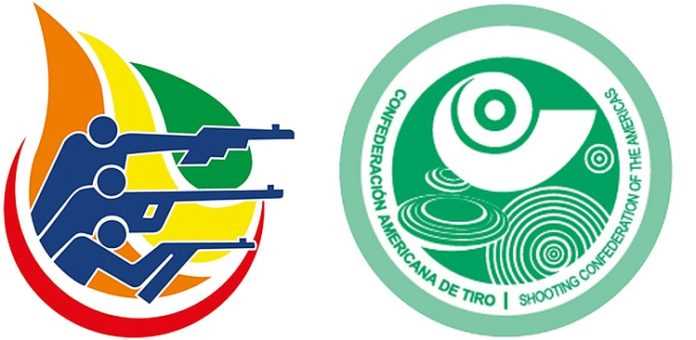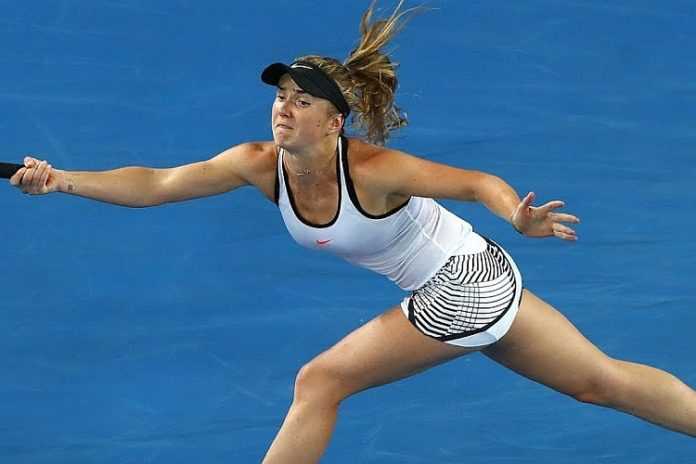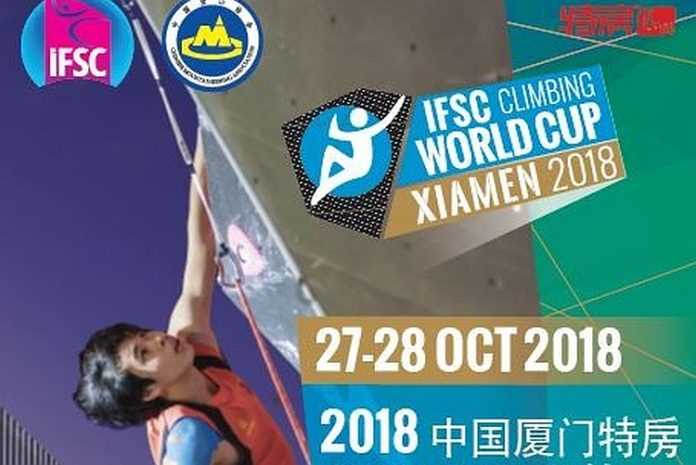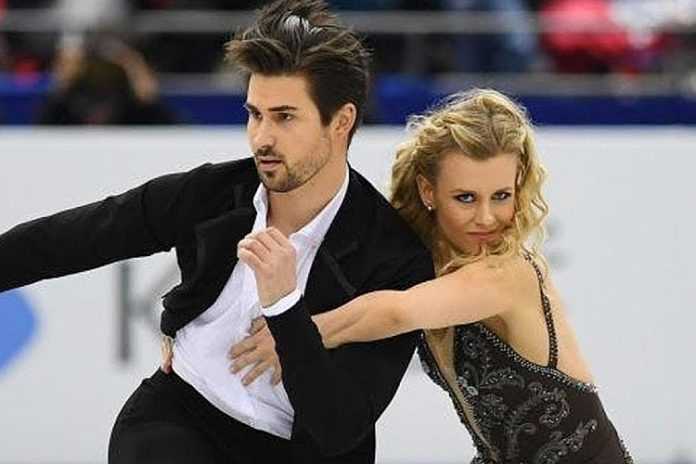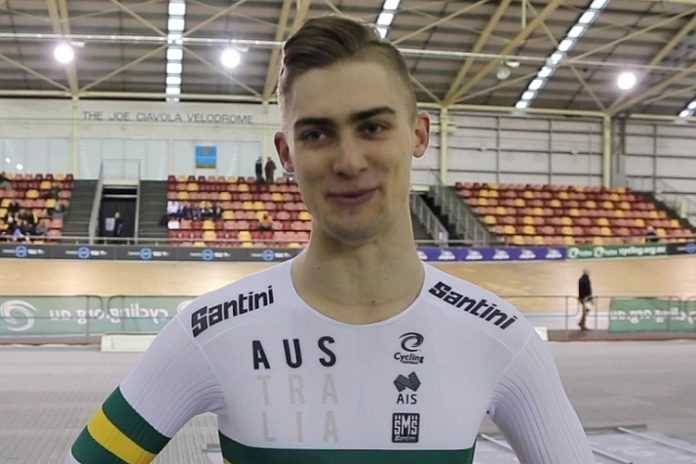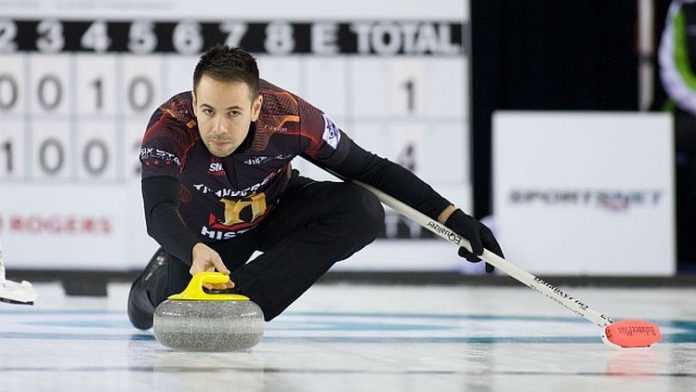The 2018 FIG World Championships in Doha (QAT) will be remembered for many things, not least of which is the first time this event has been held in the Middle East. But after a year off, American Simone Biles returned to author one of the most outstanding performances in the long history of the event:
• She won individual medals in all four apparatus finals, becoming only the eighth woman in history to achieve the feat. The list:
1950 Helena Rakoczy (POL) ~ 3-0-1 apparatus medals and All-Around gold
1958 Larisa Latynina (URS) ~ 3-1-0 and A-A gold
1962 Larisa Latynina (URS) ~ 1-2-1 and A-A gold
1966 Natalia Kuchinskaya (URS) ~ 3-0-1 and A-A silver
1974 Ludmilla Tourischeva (URS) ~ 2-1-1 and A-A gold
1974 Olga Korbut (URS) ~ 1-3-0 and A-A silver
1987 Yelena Shushunova (URS) ~ 2-1-1 and A-A silver
2018 Simone Biles (USA) ~ 2-1-1 and A-A gold
As noted, in the nine times that a woman has won medals in all four apparatus, she has also won a medal in the All-Around. No one has ever won all four apparatus finals; this is harder than winning the team title and All-Around due to the presence of specialists who excel in just one event.
• In her fourth World Championships, Biles now has 20 total medals, tied with Russia’s Svetlana Khorkina (9-8-3 from 1994-2003) for the most ever in women’s competition.
• Biles won the Vault and Floor and added to her own record for the most World Championships golds; she has 14. Khorkina, Latynina (URS: 1954-66) and Gina Gogean (ROU: 1993-97) each won nine among the women; Biles also passed Vitaly Scherbo (RUS/BLR) who won 12 golds from 1991-96) for the most of any gymnast in World Championships history.
• In terms of individual-event medals – All-Around and the apparatus – Biles now has 17 (11-3-3), the most ever. She passed Khorkina’s total of 16.
• With her fourth All-Around title, Biles set a new record for the Worlds, where only she and Russia’s Khorkina had won three.
All of this took place while Biles was suffering from a kidney stone that was diagnosed in Doha!
“I am definitely very happy, especially to win a medal in every event,” said Biles. “No matter what color the medal, I’m really proud of myself. It feels really rewarding because I’ve put a lot of hard work and dedication into this sport, so I couldn’t be happier. I’m really proud of my performances here. I wish some of them would have been better, but I’m really proud of the outcome.”
All of this at age 21, with the 2019 Worlds and the 2020 Olympic Games ahead of her … at a minimum.
The U.S. had other good news in the apparatus finals, as Morgan Hurd backed up her All-Around bronze with a silver in the Floor Exercise for a 1-2 finish with Biles. “It just feels absolutely wonderful,” Hurd said. “My team final wasn’t the absolute best that I could have done, and I was really happy to be in final this year. I wanted it so badly.”
Equally delighted was American Sam Mikulak, who won his first World Championships medal with a bronze in the Horizontal Bar, to go along with fourths on the Parallel Bars and Pommel Horse and a fifth in the All-Around. “This was my one goal for the entire year: just getting one,” said Mikulak. “I didn’t care what color it was, just breaking into the scene. It was an emotional journey, and just going out and hitting High Bar after High Bar was the event I messed up in All-Around finals and getting that redemption. There was just so much buildup.”
In addition, Yul Moldauer finished fourth in the Floor Exercise, and the U.S. finished fourth in the Team finals, so the rebuilding process for the men’s team is well along.
Thanks to eight medals from the women – six from Biles – and Mikulak, the U.S. totaled nine medals and won the overall medal count for the first time since 2015 and for the fourth time in the last five Worlds.
There were lots of other highlights, including a lot of familiar faces winning another World Championship:
• Greece’s Eleftherios Petrounias won his third World title on the Rings despite a raw shoulder that will be operated on next week!
• North Korea’s Se-Gwang Ri won the Vault for the third time (2014-15-18);
• China’s Jingyuan Zou defended his Parallel Bars title from 2017;
• Dutch Horizontal Bar specialist Epke Zonderland won his third World title – also in 2013 and 2014 – and his sixth career Worlds medal.
Also worth noting was Belgium’s Nina Derwael winning her country’s first-ever gold in the World Championships, winning the Uneven Bars over Biles, and 43-year-old Oksana Chusovitina (UZB) missing a bronze medal on the vault by 0.208 for fourth place; she won 11 career Worlds medals dating back to 1991!
The attendance in Doha was poor, not too surprising for a country that has no background in the sport, but it was a first for the region. The 2019 Worlds will be in Stuttgart (GER). Summaries from Doha:
FIG World Artistic Championships
Doha (QAT) ~ 25 October-3 November 2018
(Full results here)
Men
Team Qualifications (top 8 qualify for Final): 1. Russia, 258.402; 2. China., 257.836; 3. Japan, 253.312; 4. United States, 250.362; 5. Great Britain, 249.836; 6. Brazil, 246.961; 7. Netherlands, 245.663; 8. Switzerland, 245.186.
Team Final: 1. China (Shudi Deng, Chaopan Lin, Wei Sun, Ruoteng Xiao, Jingyuan Zou)), 256.634; 2. Russia (David Belyavskiy, Artur Dalaloyan, Nikolai Kuksenkov, mitrii Lankin, Nikita Nagornyy), 256.585; 3. Japan (Kazuma Kaya, Kenzo Shirai, Yusuke Tanaka, Wataru Tanigawa, Kohei Uchimura), 253.744; 4. United States (Sam Mikulak, Akash Modi, Yul Moldauer, Colin van Wicklen, Alec Yoder), 251.994; 5. Great Britain, 248.628; 6. Switzerland, 244.294; 7. Brazil, 243.994; 8. Netherlands, 240.660.
All-Around Qualifications (top 24 qualify for Final): 1. Ruoteng Xiao (CHN), 87.332; 2. Nikita Nagornyy (RUS), 87.098; 3. Sam Mikulak (USA), 86.598; 4. Artur Dalaloyan (RUS), 84.572; 5. Wei Sun (CHN), 84.007; 6. Kenzo Shirai (JPN), 83.864; 7. James Hall (GBR), 83.198; 8. Kazuma Kaya (JPN), 82.915. Also: 17. Yul Moldauer (USA), 80.365.
All-Around Final (limit 2 per country): 1. Dalaloyan (RUS), 87.598; 2. Xiao (CHN), 87.598; 3. Nagornyy (RUS), 86.331; 4. Sun (CHN), 85.598; 5. Mikulak (USA), 85.273; 6. Kaya (JPN), 84.765; 7. Shirai (JPN), 84.531; 8. Hall (GBR), 84.298. Also: 12. Moldauer (USA), 81.932.
Floor: 1. Dalaloyan (RUS), 14.900; 2. Shirai (JPN), 14.866; 3. Carlos Edriel Yulo (PHI), 14.600; 4. Moldauer (USA), 14.566; 5. Artem Dolgopyat (ISR), 14.566; 6. Nagornyy (RUS), 14.500; 7. Mikulak (USA), 14.233; 8. Kaya (JPN), 14.100.
Pommel Horse: 1. Xiao (CHN), 15.166; 2. Max Whitlock (GBR), 15.166; 3. Chih Kai Lee (TPE), 14.966; 4. Mikulak (USA), 14.333; 5. Nariman Kurbanov (KAZ), 13.400; 6. Nagornyy (RUS), 12.533; 7. David Belyavskiy (RUS), 11.833; 8. Cyril Tommasone (FRA), 11.500.
Rings: 1. Eleftherios Petrounias (GRE), 15.366; 2. Arthur Zanetti (BRA), 15.100; 3. Marco Lodadio (ITA), 14.900; 4. Artur Tovmasyan (ARM), 14.766; 5. Nagornyy (RUS), 14.733; 6. Vahagn Davtyan (ARM), 14.733; 7. Nikita Simonov (AZE), 14.266; 8. Igor Radivilov (UKR), 14.133.
Vault: 1. Se-Gwang Ri (PRK), 14.933; 2. Dalaloyan (RUS), 14.883; 3. Shirai (JPN), 14.675; 4. Dominick Cunningham (GBR), 14.666; 5. Nagornyy (RUS), 14.650; 6. Wai Jung Shek (HKG), 14.366; 7. Artur Davtyan (ARM), 13.933; 8. Caio Souza (BRA), 13.883.
Parallel Bars: 1. Jingyuan Zou (CHN), 16.433; 2. Oleg Verniaiev (UKR), 15.591; 3. Dalaloyan (RUS), 15.366; 4. Mikulak (USA), 15.233; 5. Chaopan Lin (CHN), 15.200; 6. Jossimar Calvo (COL), 15.033; 7. Belyavskiy (RUS), 14.633; 8. Lukas Dauser (GER), 13.700.
Horizontal Bar: 1. Epke Zonderland (NED), 15.100; 2. Kohei Uchimura (JPN), 14.800; 3. Mikulak (USA), 14.533; 4. Tin Srbic (CRO), 14.500; 5. Chia-Hung Tang (HKG), 14.266; 6. Shudi Deng (CHN), 14.066; 7. Xiao (CHN), 13.900; 8. Dalaloyan (RUS), 12.666.
Women
Team Qualifications (top 8 qualify for Final): 1. United States, 174.429; 2. Russia, 165.497; 3. China, 165.196; 4. Canada, 163.897; 5. Brazil, 162.529; 6. Japan, 162.180; 7. France, 161.629; 8. Germany, 161.071.
Team Final: 1. United States (Simone Biles, Riley McCusker, Morgan Hurd, Kara Eaker, Grace McCallum), 171.629; 2. Russia (Liliia Akhaimova, Irina Alekseeva, Angelina Melnikova, Aliia Mustafina, Angelina Simakova), 162.863; 4. China (Yile Chen, Tingting Liu, Jinru Liu, Huan Luo, Jin Zhang), 162.396; 4. Canada, 161.644; 5. France, 161.294; 6. Japan, 160.262; 7. Brazil, 159.830; 8. Germany, 159.428.
All-Around Qualifications (top 24 qualify for Final): 1. Simone Biles (USA), 60.965; 2. Morgan Hurd (USA), 56.465; 3. Mai Murakami (JPN), 55.632; 4. Nina Derwael� (BEL), 55.564; 5. Angelina Melnikova (RUS), 55.465; 6. Ellie Black (CAN), 54.999; 7. Melanie de Jesus dos Santos (FRA), 54.798; 8. Riley McCusker (USA), 54.765.
All-Around Final (limit 2 per country): 1. Biles (USA), 57.491; 2. Murakami (JPN), 55.798; 3. Hurd (USA), 55.732; 4. Derwael (BEL), 55.699; 5. Melnikova (RUS), 55.698; 6. De Jesus dos Santos (FRA), 55.599; 7. Chen (CHN), 54.632; 8. Flavia Saraiva (BRA), 54.366.
Vault: 1. Biles (USA), 15.366; 2. Shallon Olsen (CAN), 14.516; 3. Alexa Moreno (MEX), 14.508; 4. Oksana Chusovitina (UZB), 14.300; 5. Seojeong Yeo (KOR), 14.233; 6. Jinru Liu (CHN), 14.150; 7. Black (CAN), 14.116; 8. Rye Yong Pyon (PRK), 13.616.
Uneven Bars: Nina Derwael (BEL), 15.200; 2. Biles (USA), 14.700; 3. Elisabeth Seitz (GER), 14.600; 4. Huan Luo (CHN), 14.500; 5. Aliia Mustafina (RUS), 14.433; 6. Hurd (USA), 14.433; 7. Rebecca Downie (GBR), 13.333; 8. Jonna Adlerteg (SWE), 13.166.
Beam: 1. Tingting Liu (CHN), 14.533; 2. Anne-Marie Padurariu (CAN), 14.100; 3. Biles (USA), 13.600; 4. Derwael (BEL), 13.466; 5. Black (CAN), 13.033; 6. Kara Eaker (USA), 12.833; 7. Sanne Wevers (NED), 12.666; 8. Jin Zhang (CHN), 11.500.
Floor: 1. Biles (USA), 14.933; 2. Hurd (USA), 13.933; 3. Murakami (JPN), 13.866; 4. Melnikova (RUS), 13.833; 5. Flavia Saraiva (BRA), 13.766; 6. De Jesus dos Santos (FRA), 13.433; 7. Liilia Akhaimova (RUS), 13.366; 8. Brooklyn Moors (CAN), 13.066.














